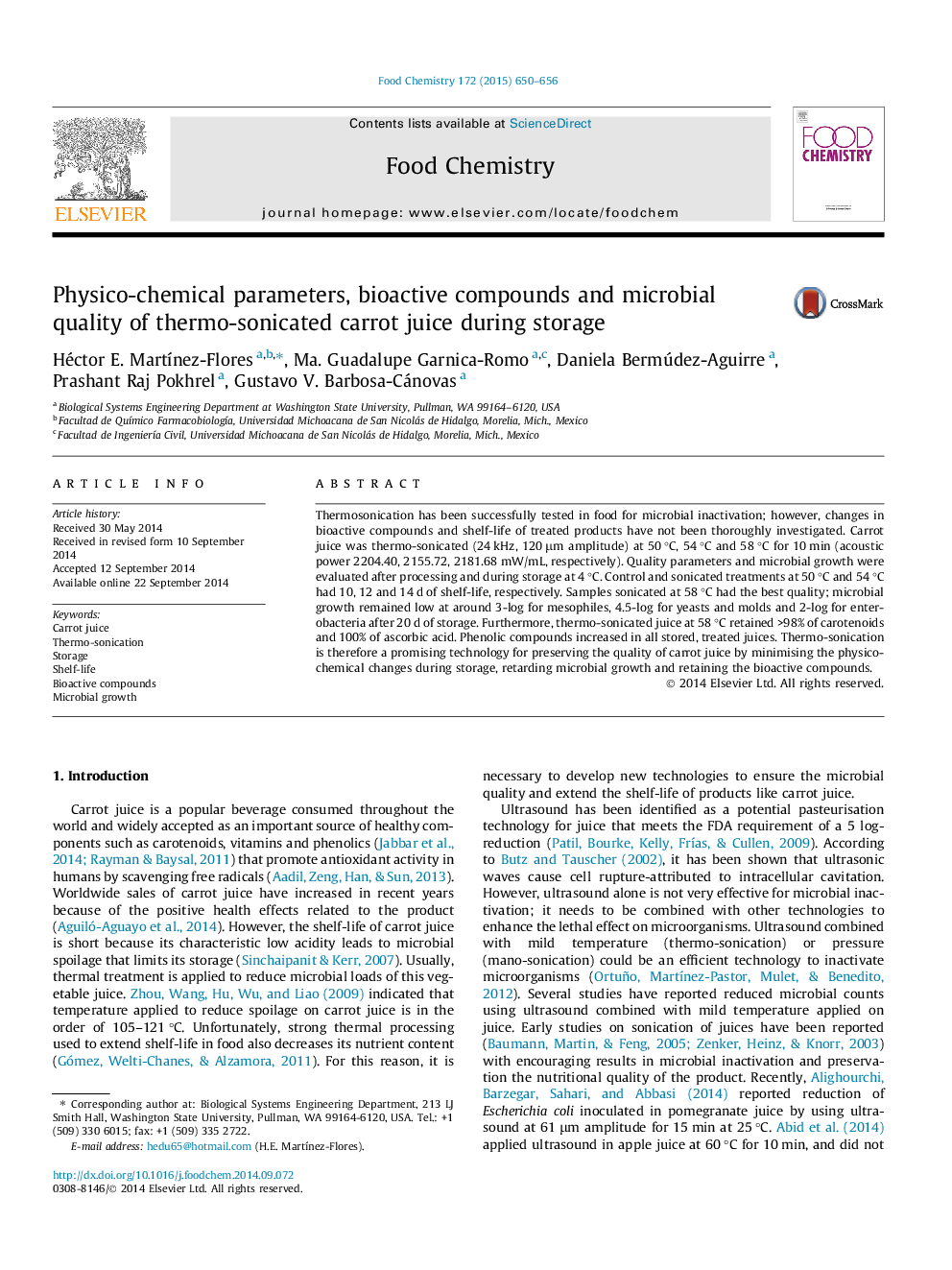| Article ID | Journal | Published Year | Pages | File Type |
|---|---|---|---|---|
| 7594400 | Food Chemistry | 2015 | 7 Pages |
Abstract
Thermosonication has been successfully tested in food for microbial inactivation; however, changes in bioactive compounds and shelf-life of treated products have not been thoroughly investigated. Carrot juice was thermo-sonicated (24 kHz, 120 μm amplitude) at 50 °C, 54 °C and 58 °C for 10 min (acoustic power 2204.40, 2155.72, 2181.68 mW/mL, respectively). Quality parameters and microbial growth were evaluated after processing and during storage at 4 °C. Control and sonicated treatments at 50 °C and 54 °C had 10, 12 and 14 d of shelf-life, respectively. Samples sonicated at 58 °C had the best quality; microbial growth remained low at around 3-log for mesophiles, 4.5-log for yeasts and molds and 2-log for enterobacteria after 20 d of storage. Furthermore, thermo-sonicated juice at 58 °C retained >98% of carotenoids and 100% of ascorbic acid. Phenolic compounds increased in all stored, treated juices. Thermo-sonication is therefore a promising technology for preserving the quality of carrot juice by minimising the physicochemical changes during storage, retarding microbial growth and retaining the bioactive compounds.
Related Topics
Physical Sciences and Engineering
Chemistry
Analytical Chemistry
Authors
Héctor E. MartÃnez-Flores, Ma. Guadalupe Garnica-Romo, Daniela Bermúdez-Aguirre, Prashant Raj Pokhrel, Gustavo V. Barbosa-Cánovas,
